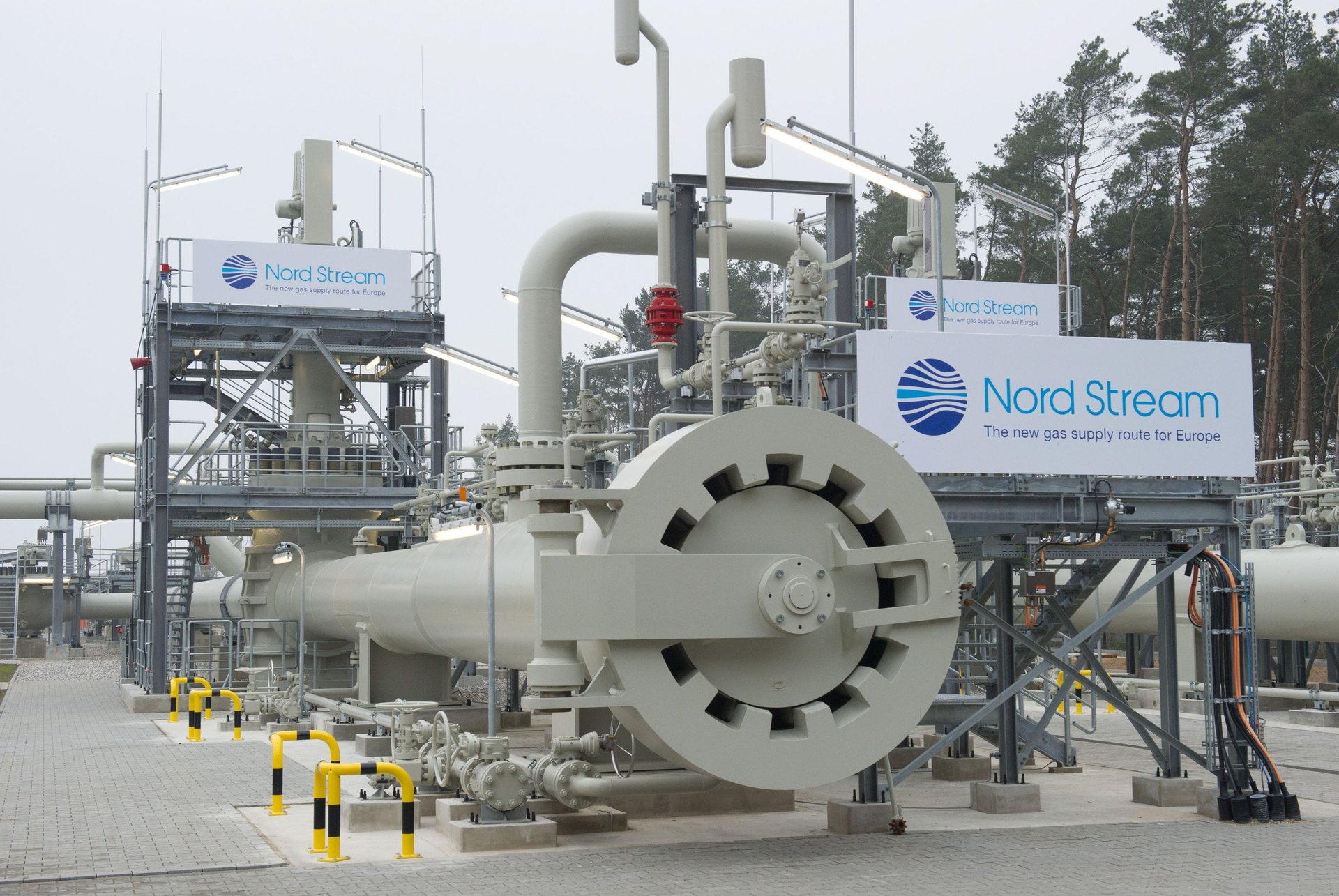With the controversial pipeline looming, Germany brokers gas talks between Russia and Ukraine
Europe’s reliance on Russian gas wasn’t front-page news until Donald Trump lashed out at Germany at the NATO summit last week. Calling it a “captive of Russia,” because of how much gas it imports, he heavily criticized the construction of a new gas pipeline connecting Russia and Germany.


Europe’s reliance on Russian gas wasn’t front-page news until Donald Trump lashed out at Germany at the NATO summit last week. Calling it a “captive of Russia,” because of how much gas it imports, he heavily criticized the construction of a new gas pipeline connecting Russia and Germany.
The real reason why Trump is so wound up about this energy deal has little to do with security issues. It is all to do with the fact that American suppliers of liquefied natural gas (LNG) want a piece of the European market—something which Russia makes a huge amount of revenue from.
“I think that we will be competing when you talk about the pipeline,” Trump said on Monday during his Helsinki press conference with Russian president Vladimir Putin. “The United States is now, or soon will be, but I think it is right now the largest in the oil and gas world, so we’re going to be selling LNG.”
However, long before Trump waded in, a number of EU countries have protested the pipeline. Not to be confused with the existing Nord Stream pipeline, the 1,200-kilometer Nord Stream 2 will follow a similar route from Russia’s reserves in Siberia, across the Baltic Sea to Germany’s northern coast, excluding countries like Poland. A number of Eastern European countries are vexed to be missing out on transit fees. They are also concerned that they will find themselves in a precarious position if Russia shuts down other pipelines in Eastern Europe.
Ukraine fears the pain
Relations between Moscow and Kiev have been in tatters since Russia annexed Crimea in 2014, and there’s a long history of Russia choking off Ukraine’s gas supply. Ukraine also fears it stands to lose billions after the current transit contract between Gazprom and Naftogaz runs out at the end of next year.
Today, European Commission vice president Maroš Šefčovič and German economy minister Peter Altmaier hosted a meeting between Russian energy minister Alexander Novak and Ukrainian foreign affair minster Pavlo Klimkin in Berlin. The aim was to get a dialogue going over what happens in 2019, when the Ukraine’s current gas-transit contract with Russia runs out—and the Nord Stream 2 nears completion. Šefčovič said that the pressure was on to start complex negotiations on “a continued, long-term transit of Russian gas through Ukraine to the EU in a reliable, commercially viable way.” Talks will continue in September.
While Germany’s foreign office was quick to point out on Twitter that Russian gas only accounted for 9.6% of Germany’s overall energy consumption in 2017, the country is still the EU’s biggest natural gas importer.
Chancellor Angela Merkel has been a staunch defender of the new pipeline, which will double the amount of gas Russia can funnel to Germany. “We also want Ukraine to continue to have transit gas traffic, but we believe Nord Stream poses no danger to diversification and should be seen under economic aspects,” she told reporters in February. She and Putin put on a rare show of unity about the project in May.